Arjun Yadav
Table of Contents
Completed
2024
- EF Fall Hackathon
- Arrayah
- Horizon Omega (HΩ)
- OptX
- Effective Altruism UAE
- AI Plans
- AI Safety Fundamentals: Governance Course
- AI Safety Fundamentals: Alignment Course
- Zerodha Varsity
- Dioptra
- AI Safety Camp: VAISU
- Internship @ DPS Sharjah
- Ocean Busters
- GMAMUN Jr.'24
- Student Council - 12th + Head of Events
2023
- AUS CSE Research Assistant
- Advent of Code 2023
- Gratis 2023
- DXBMUN 2023
- NMSMUN 2023
- Project: Unboxed
- TEDxYouth@DPSS 2023
- Arjun's AI Escapades Class
- RTA Hackathon
- SOLARIS (Third Edition)
- Mathematics for Machine Learning
- YCM Youth Meet-up
- Machine Learning Safety Course
- SOLARIS (Second Edition)
- GFSMUN 2023
- Local Hackathon 2023
- YGSS 2023
- freeCodeCamp
- National Maths Competition
- Student Council - 11th
- ADMUN 2023
- Brilliant
- Middle School CS Event
- Advent of Code (PyTech)
- Cold Takes Beta Reading
2022 and 2021
- y1d2
- Introduction to Machine Learning
- Winter Computing Camp
- Emirate-Level Hackathon
- GFSMUN 2022
- Cubing
- Local Hackathon
- Effective Altruism India
- KENKEN
- Chess
- Bear Blog Replacement Template
- SOLARIS (First Edition)
- Sudoku
- gallpeters
- Effective Altruism Data
- bettermailto
- EAGxOxford 2022
- EA In-Depth Fellowship Facilitator
- Miller-Rabin Research
- Effective Altruism In-Depth Fellowship
Retroactive
- Classless CSS + Bear Blog Replacement
- youthree
- Symposium Project
- CaryKH's Prisoner's Dilemma Tournament
- WaveLF Courses
Archive
Navigation Tips
- Press Ctrl/Cmd + ↑ to return back to the table of contents/navigation bar.
- Use Ctrl/Cmd + F to search for any keyword/date.
Confused? See the note down below.
Completed
EF Fall Hackathon
Nov 2024
I was accepted to EF's Fall Hackathon this year.
Summary
An extremely fun hackathon, my first time being in London proper after almost a decade, and my first hackathon in the UK (could have been my second, but oh well). Loved my teammates, and even though we didn't win, the food was pretty damn great.

Arrayah
Aug 2024
I was a deep tech intern at a hacker space in Dubai backed by The Residency. This covers both O.S.S. and Feed Forward as well.
Summary
Looking back, I did not enjoy this project of mine all that much, a feeling which is less to do with the organisers and more to do with my co-founder who I did not get along with at all. Nonetheless, there were pockets of deeply enjoyable moments which I will cherish.

Horizon Omega (HΩ)
Apr 2024-Aug 2024
I was part of the Horizon Omega team, helping out with hosting our seminars.
Summary
An enjoyable time overall, worked closely with Orpheus on hosting the seminars which all went smoothly, just wish I dedicated more time to this in the past.
OptX
Jan 2023-Aug 2024
Became part of OptX, my school's student-led initiative to provide opportunities to the youth. Trying to the best job I can.
Summary
OptX was started by my high school's batch as an effort to provide more volunteering opportunities to the youth (mostly other high school students across the U.A.E.), I was not there during its founding, and truth be told, I only got involved out of a fear of missing out on something big. And big it was.
Our first event was called The Symposium, an event that brought together an astrophysics professor and a surgeon with some 30-40 of our batchmates to discuss their respective fields and solve a "crisis" situation.

We got the idea pretty impromptu to hold an Iftar distribution outside a labour camp in Dubai, which became the second of two events to be continued (the other one being The Symposium), in between, some of us volunteered for the UAE Aid distribution campaign for those affected by the Türkiye-Syria earthquake.


During the summer, some of us decided to pay a visit to an astronomy centre in Dubai. It was also during this summer we tried our hand at organising a reel-making campaign to promote healthy eating (a campaign which received one submission... by me)

Our last event for 2023 was visiting a Senior Happiness Centre in Dubai. We carried on with our sequels, by this point planning for The Symposium 2.0 was underway, and with a date announced and a venue + another successful Iftar distribution campaign, everything seemed to be swell.

Somewhat last minute, however, our venue pulled out for The Symposium 2.0, leaving us scrambling for a replacement. Thankfully, one did come and what occured was our largest event yet in terms of attendance and venue.

I'm extremely glad OptX happened to me, made some of my closest friends through it and learnt a lot about myself through helping others.
Effective Altruism UAE
Dec 2022-Aug 2024
A cold email led to me and another person co-founding EA UAE. Tried to make it as successful as possible.
Summary
This project started out with Riya cold-emailing me after she attending an EA community building fellowship, the email asked if I was interested in "restarting" EA Dubai. I said yes, of course.
From my recollection, we started Effective Altruism UAE after speaking with Q, the founder of EA Dubai who at the time was studying in England. We created a group chat, added the leaders of EA AUS and EA NYUAD at the time, and slowly, but surely, things started to take-off.
The peak of EA UAE was when we were just simply hosting dinners and socials for both university groups (which I'm sure they appreciated, taking off one event from their calendar to organise!)
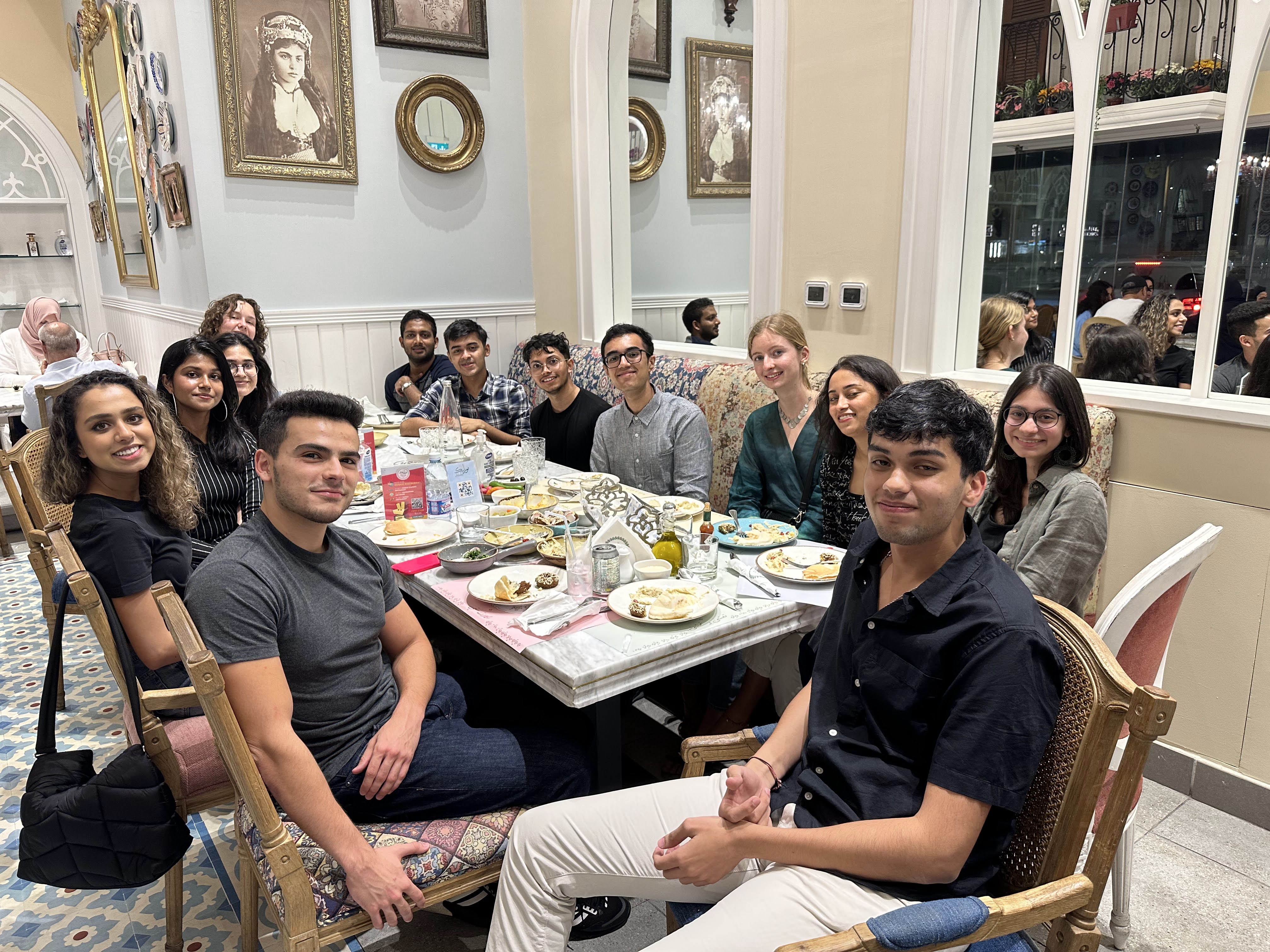

But alas, all good things come to a halt eventually. After Riya left to Ireland, it became quite difficult to maintain a level of activity in the group chat. I recall trying to start something with sending EA Forum posts daily? Any how, made some good friends, learnt a lot, I'd call that a success.
AI Plans
Dec 2023-Jul 2024
I was formerly an active member of the AI Plans dev team.
AI Plans' start date is the date I started logging, not the date when the project started.
Summary
Helped out AI Plans at a time when they were making a pretty major transition to a new website design, there was some turbulance from me not knowing Vue.js fully, but I got help when I needed and Kabir was very thoughtful and considering of my inputs and contributions.
AI Safety Fundamentals: Governance Course
Mar 2023-Jul 2024
I was a fellow for the AI Safety Fundamentals Governance course. I finished my project a bit later on however due to other commitments.
Summary
Similar to the alignment course, was extremely well facilitated (by someone who I, coincidentally, knew beforehand from EA UAE!) and the cohort I was in was super lovely. Learnt a lot.
AI Safety Fundamentals: Alignment Course
Feb 2023-Jul 2024
I was a fellow for AI Safety Fundamentals Alignment course. I finished my project a bit later on however due to other commitments.
Summary
After many failed applications and mock attempts at completing the syllabus myself, I finally got accepted to the course, and coincidentally, my facilitator was someone who I was working with for VAISU 2024. A wonderful time of learning.
Zerodha Varsity
Apr 2024-Jun 2024
Finished the Zerodha Varsity course till the third module.
Summary
Finished this course till the third module (mostly because the other modules didn't seem to provide much value) with friends, hope to actually apply what I've learnt when I enter university. Still, was interesting especially when connecting it with my knowledge in economics.
Dioptra
Dec 2023-Jun 2024
I was of the Dioptra team, where I worked on GameBench, a project which led to my first project.
Summary
This was a really stressful and difficult project to get through, mostly because of the fact that during crunch time (trying to get all the games ready for the testing to actually occur between the large language models), I had my final high school exams. Everything turned out fine in the end thankfully, and I got my first paper published into arXiv and NeurIPS.
AI Safety Camp: VAISU
Dec 2023-Jun 2024
I was an inductee for AISC 2024, where I was part of Project #29: VAISU.
Retrospective
While not everything went smoothly, this event represents the culmination of countless nights working on the little things to make the process of being a speaker, giving your talk and inspiring others as smooth as possible, and there's untold value in having events like these always present for newcomers in the field.

Internship @ DPS Sharjah
May 2024
Interning at my high school for a brief stint.
Summary
This internship was a lot (turns out, it's pretty hard to go back to waking up at 5:30 after thinking you're "done with school") but the conversations between teachers, mentors and friends are memories I'll cherish forever.

Ocean Busters
Jul 2023-May 2024
I was formerly a blog writer and editor at Ocean Busters, a new organisation dedicated to effectively tackling ocean pollution.
Summary
This project was pretty random, I do remember filling out a Google Form and getting accepted to be a blog writer and editor, and occasionally a Google Docs link would come my way which I would edit (I never did end up writing a blog post, only editing duties). But that's about, the organisation (and hence the project) just sort of fizzled out.
GMAMUN Jr.'24
Apr 2023
Was head chair of the United Nations Office on Outer Space Affairs!
Summary
First (and probably last) time chairing was a decent success (even though I had skipped the first day, oh well, I was not going to skip beach day with my classmates).

Student Council - 12th + Head of Events
Mar 2023-Jan 2024
Became the vice head boy of my school. Tried to the best job I can. Also, I was the Head of Events for my school's environment club.
Summary
One advice I wish I was more aware about when I was younger was that my time is valuable. I would not trade anything for the friendships I gained during this project, but it took a lot out of me for sure. Regardless, while I would advice anyone in my position to evaluate their time carefully, I'm still happy with my end result.






AUS CSE Research Assistant
Jun 2023-Dec 2023
Formerly a research assistant for the computer science and engineering department at the American University of Sharjah. Will continue after my examinations this last month of the year.
Summary
I was a research assistant at the American University of Sharjah, I got it after emailing my professor from their Winter Computing Camp. While I did not achieve a lot, I certainly learned a lot, and my professor was super welcoming and helpful during my journey, even at times when he was busy with his own duty. Came back to show my first published paper with Dioptra.


Advent of Code 2023
Dec 2023-Dec 2023
Tried to solve all the coding problems for 2023's Advent of Code!
Summary
Got about 25 stars. Advent of Code is only as fun as the group you're completing it with.
Gratis 2023
Dec 2023-Dec 2023
Was the drummer for Band 2 - and played the drums for two songs for our annual Gratis event
Summary
Greatest gig in the sky.

DXBMUN 2023
Dec 2023-Dec 2023
Was the delegate of Nigeria for the United Nations Office on Drugs and Crime, won outstanding delegate!
Summary
May not have been the best MUN I've attended, but god damn was it fun at times - if not very stressful. Still, walked away with a win!

NMSMUN 2023
Oct 2023-Oct 2023
Was the delegate of France for the Special Committee on Peacekeeping Operations, won best delegate and best delegation!
Summary
What an eventful MUN: from the delegate of Russia tearing up my placard to the various spars between me and Russia and DPRK: I am glad that, in the end, a great resolution was passed and we were able to enjoy the fruits of all of our labour!

Project: Unboxed
Oct 2023-Oct 2023
Student moderator for the metaverse committee!
Summary
A really enjoyable experience overall: my sir present during the committee was really informative and thoughtful, and the whole committee came to rational conclusions without much bickering, also gave a short speech as part of the panel discussion!
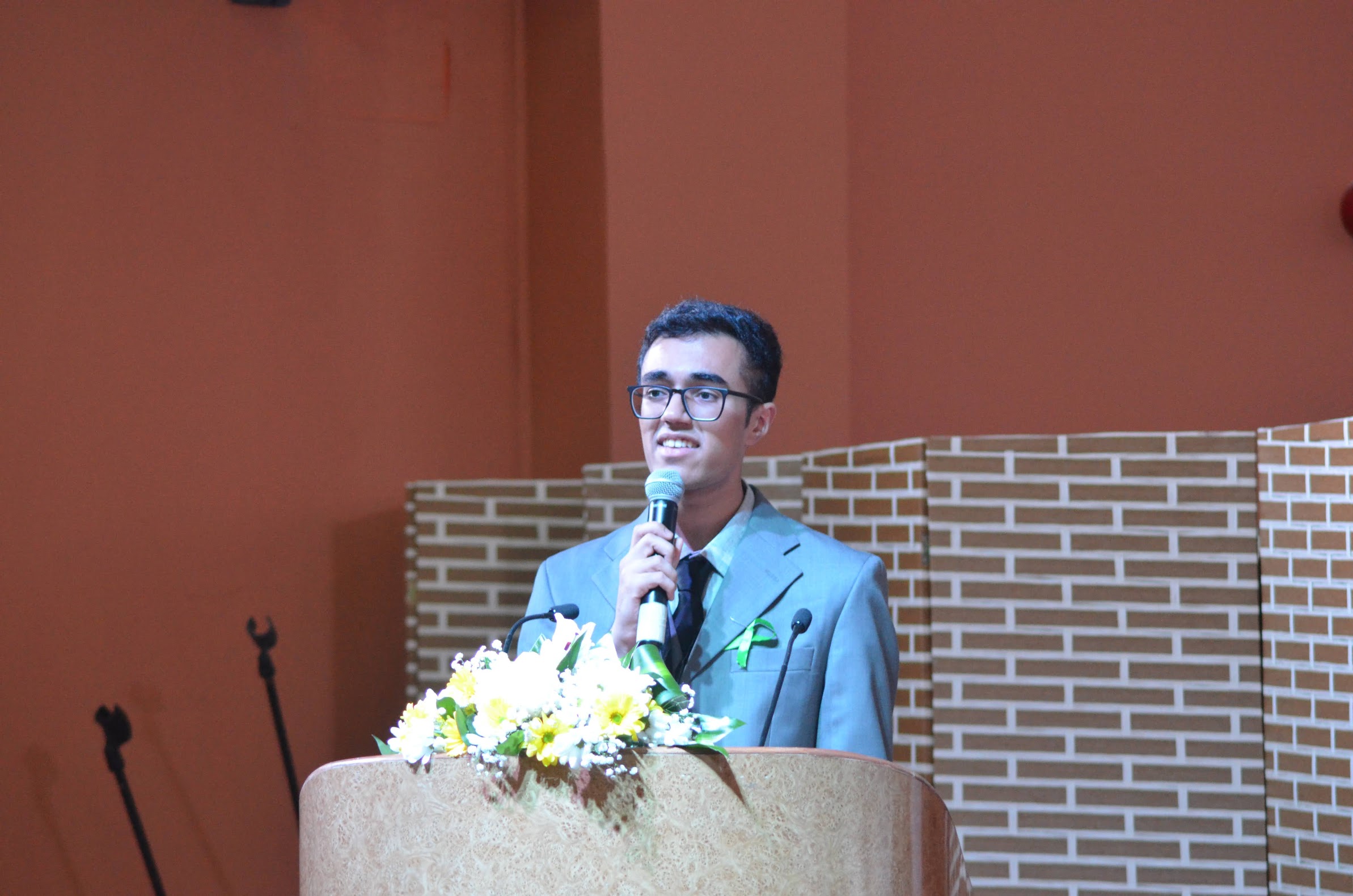
TEDxYouth@DPSS 2023
Jul 2023-Sep 2023
Formerly the co-event organiser for my school's second edition TEDxYouth!
Summary
This event took a lot out of me, mostly because of the amount of stress I put on myself and me not taking steps back when I needed to, but nonetheless, this was an immensely memorable project in my life. Taught me a lot about leading a team and organising something somewhat big.

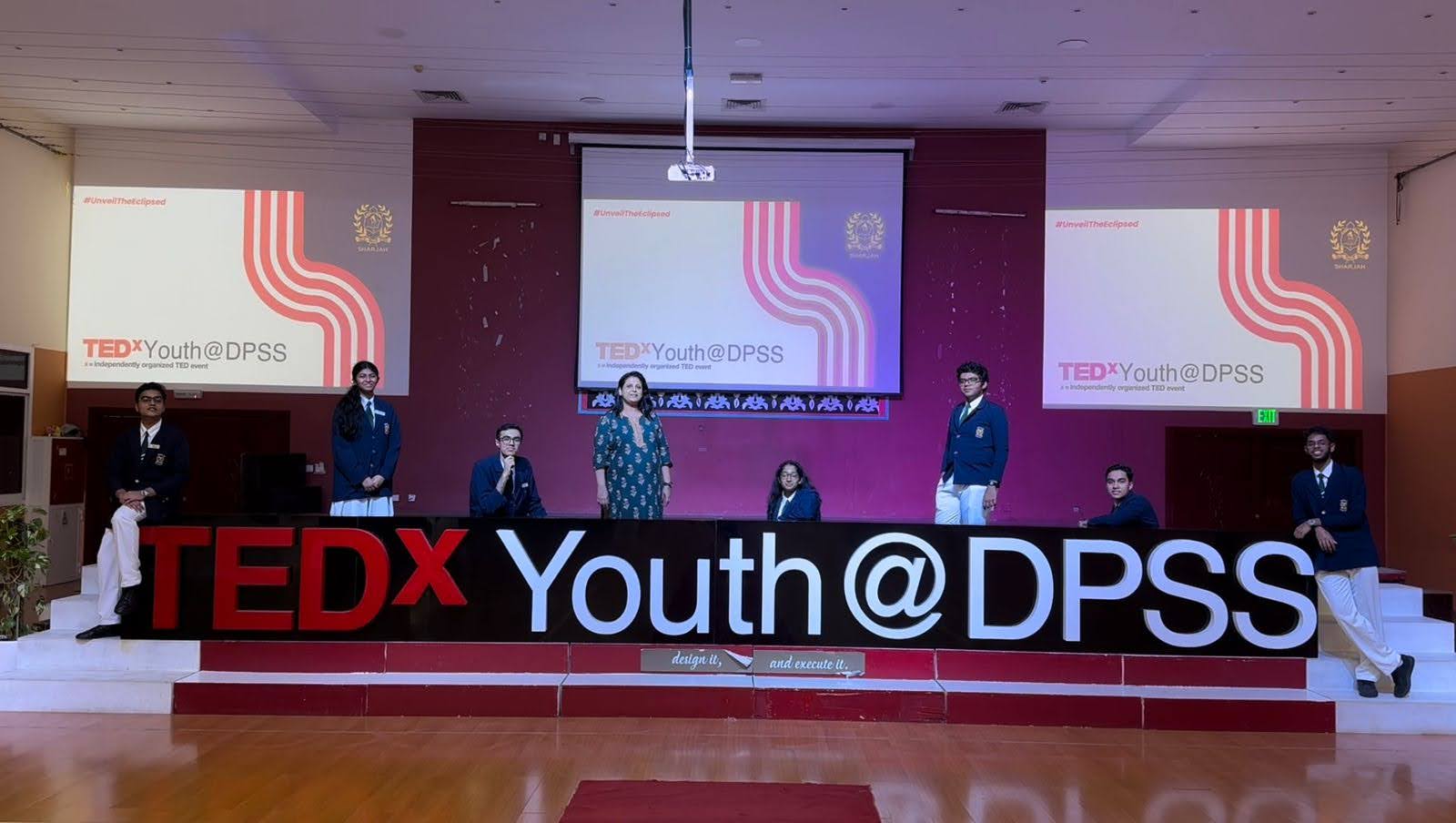
Arjun's AI Escapades Class
Aug 2023-Aug 2023
Hosting a series of machine learning and AI safety classes this summer!
Summary
This was a fun one, I missed the feeling of teaching, and I was getting really into more technical aspects of AI Safety through my self-study efforts, and so, through Instagram, I announced this project. Grateful to everyone who signed up and joined my lessons.
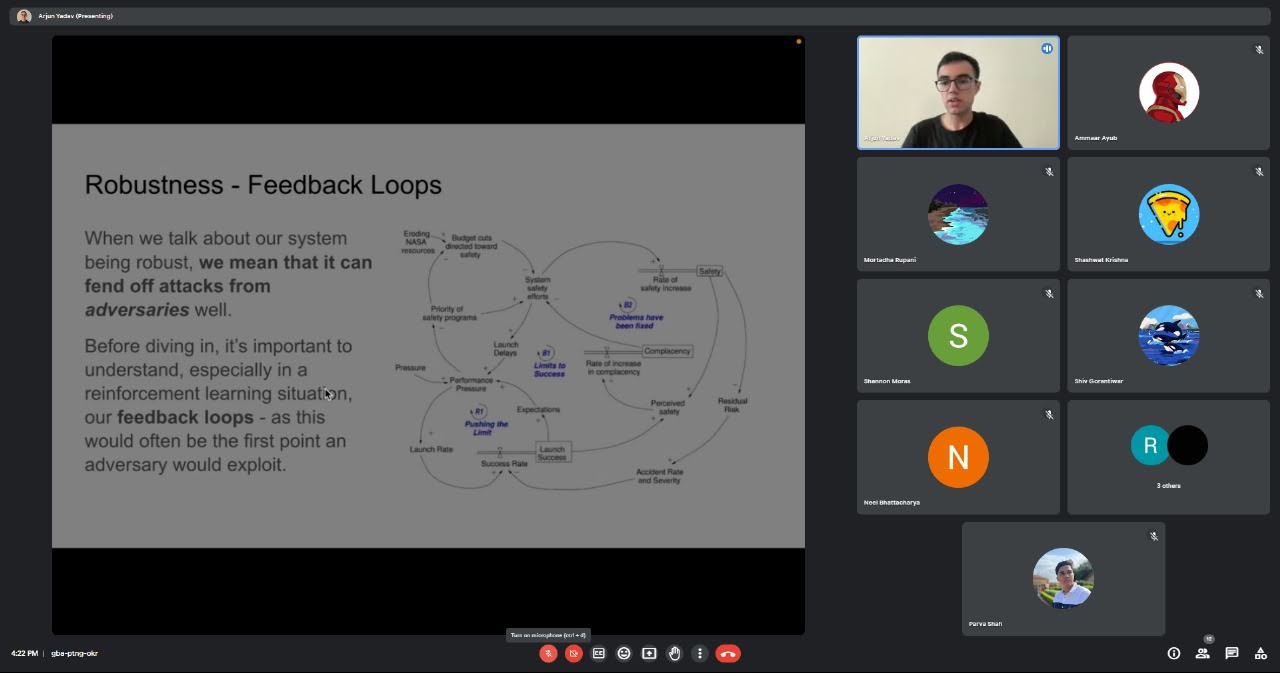
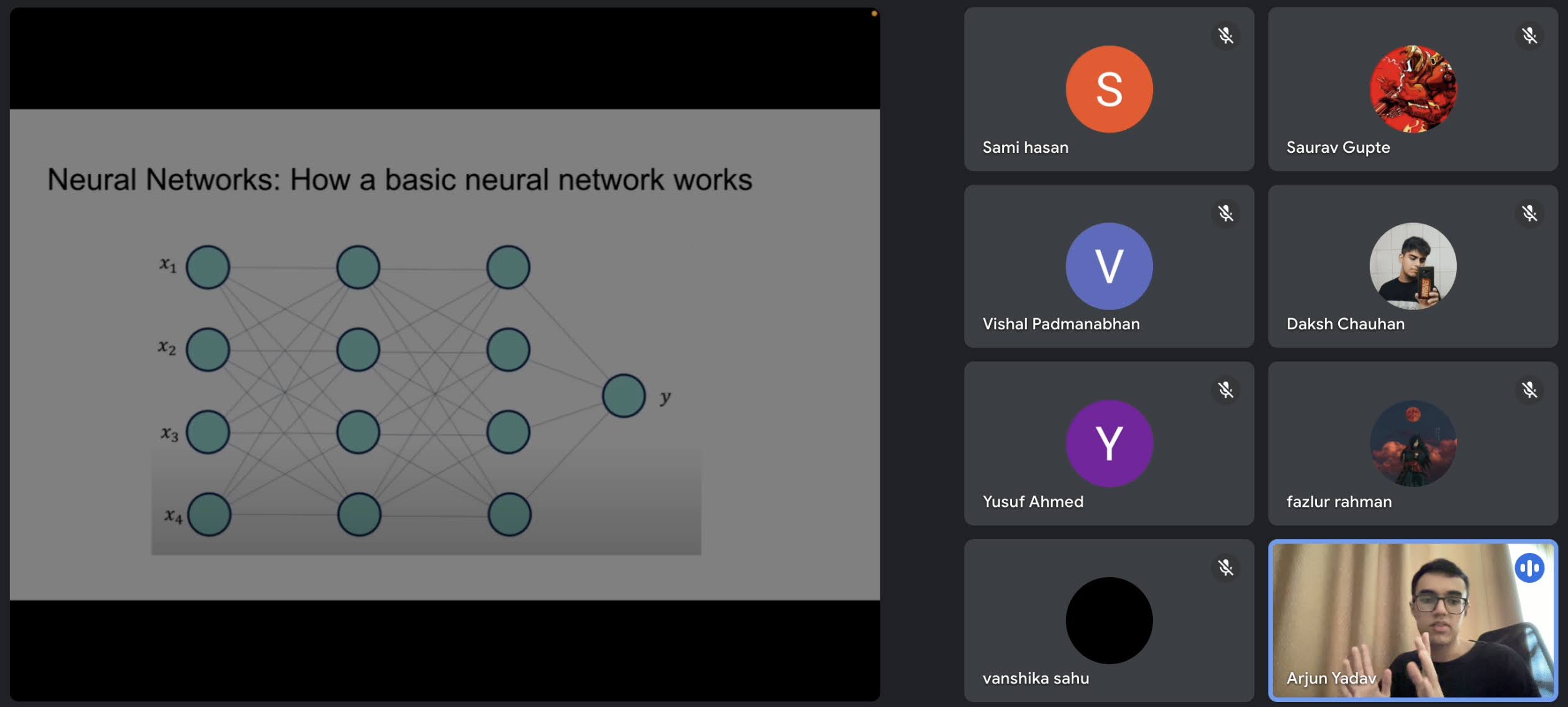
RTA Hackathon
Aug 2023-Aug 2023
Participated in RTA's sustainability ~hackathon!
Summary
A lot of work happened before the start date given here: including finalizing our idea (an app to provide a sustainable transport mode given a particular route) and many meetings. But overall, it was a fun (and exhausting) time that had an incredible class on entrepreneurship on the first day! Glad to have been a part of this chaos.

SOLARIS (Third Edition)
Jul 2023-Aug 2023
One last rodeo this summer! Excited to be teaching our ten incredible students.
One last time teaching Effective Altruism to my high school, an interesting ride.

Mathematics for Machine Learning
Jul 2022-Aug 2023
Learnt the linear algebra, multivariate calculus and principal component analysis behind machine learning.
Summary
Fun course.
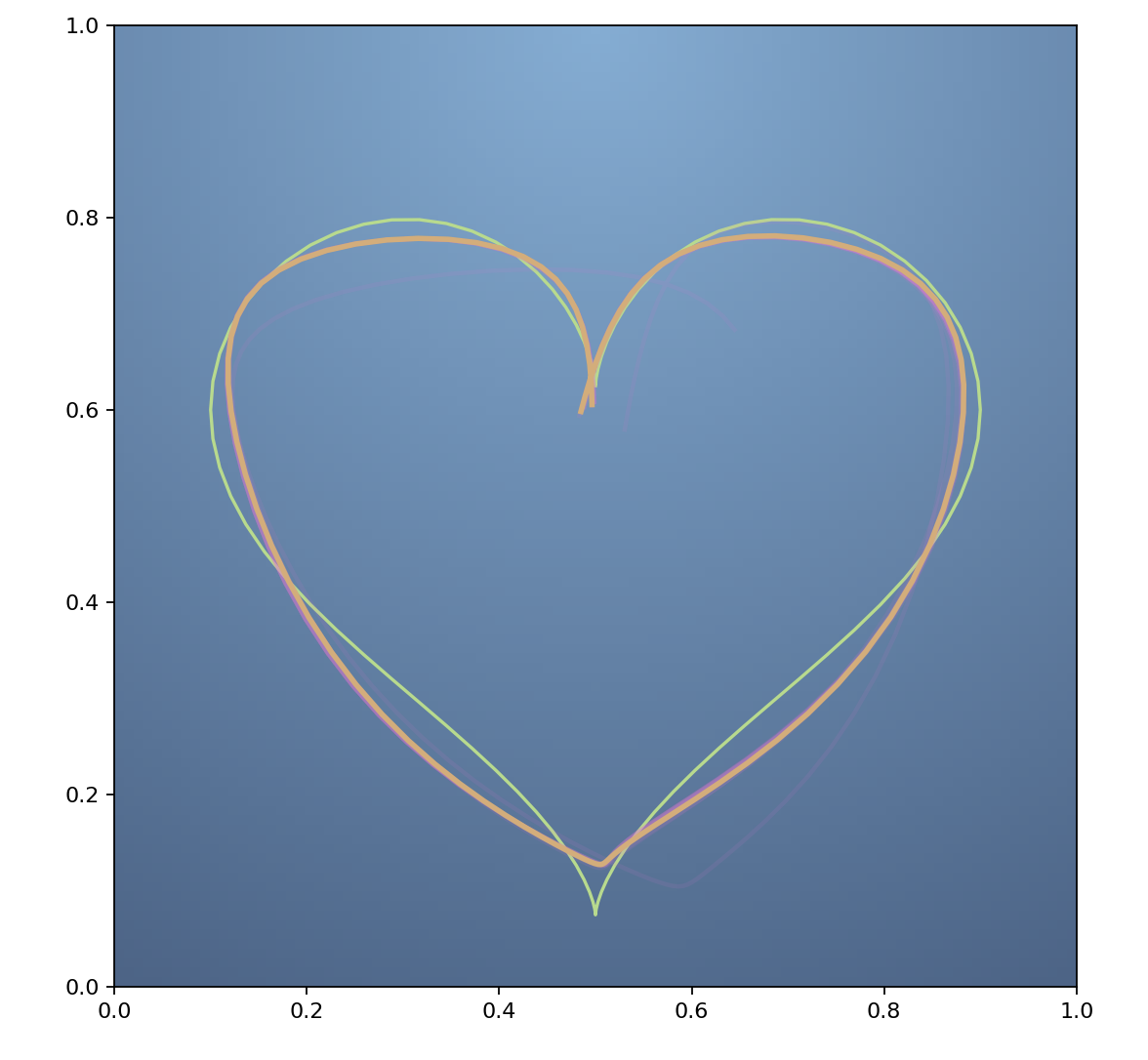
YCM Youth Meet-up
Aug 2023
Attended Youth Creative Minds' Youth meet-up!
Summary
Had a great time at Khaleej Times x YCM's youth meet-up, got a chance to speak about climate denialism and it was, overall, a fun experience meeting some of my seniors!

Machine Learning Safety Course
Jun 2023
~Finished the ML Safety course (Intro to ML Safety) in one day and made a guide/blog post on it.
Summary
This was quite an experience - finished going through the ML Safety Course by the Center for AI Safety and made a guide/post from my notes.
SOLARIS (Second Edition)
Dec 2022-Jul 2023
Tried to co-run the second edition of a logic, rationality and Effective Altruism club that I co-founded.
Summary
Second time teaching Effective Altruism to my high school, got some really interesting capstone projects!
GFSMUN III
Jun 2023-Jun 2023
Attended GFSMUN 2023 as part of my school team, and won best speaker!
Summary
From ditching a portion of the first day (and missing my chance for a GSL) for prom to the odd crisis where I became Mark Zuckerberg to me beefing with the delegate of Nigeria (who won best delegate, well deserved!), GFSMUN III and the United Nations Office for Outer Space Affairs was one heck of a MUN and committee respectively. Shout out to my incredible chairs (who nit-picked on the number of hours I stated on my first position paper lol)

Local Hackathon 2023
Jun 2023-Jun 2023
From participant to organiser this time around! The start date for this project represents when the auditions were conducted.
Summary
From the okay-ish auditions (which were mostly my doing) came a really fun hackathon: the teams were assigned to create an encryption/decryption app using Tkinter in Python. In the beginning, a fun plot line involving the FBI/CIA and spying emerged. Was quite fun!

YGSS 2023
May 2023-May 2023
I was a resource head for the Earth and Climate Change Council and a member of the IT team. Won best counci.l
Summary
This whole project should be prefaced by the sheer amount of work that had gone into it: from my main work as a resource head for the Earth and Climate Change council: working on the agenda document, the background guide and the video with my co-resource head and directors - as well as helping out with the website as part of the IT team.
With that being said, what an incredible event, so glad to have been (somewhat) randomly selected for ECC - I'd like to think I was a pretty darn good resource head, and won best council with my incredible directors, co-resource head, IT and press members.

freeCodeCamp
Oct 2021-Mar 2023
Trying to finish freeCodeCamp.org's curriculum by the end of 2023.
freeCodeCamp.org's start date is the date I started logging, not the date when the project started.
Summary
Here are all the certifications I've earned from freeCodeCamp (would recommend these courses highly if you're completely new to programming, maybe supplementing with YouTube videos in-between if you're having trouble understanding)-
- Scientific Computing with Python
- Quality Assurance
- Back-End Development and APIs
- Data Visualizations
- JavaScript and Data Structures
- Front-End Development Libraries
- Responsive Web Design
National Maths Competition
Mar 2023
Attended a national maths competition with my schoolmate.
Summary
Attended the first (and last) day of a national maths competition with my schoolmate as a duo. First round went really well (mostly because it was easy + 60 minutes) and got ~7th place, however the second round was extremely hard (and 45 minutes!) so we did not reach top 3. Oh well, the ride to the university + the conversations with him were what mattered the most. Great food though!
Student Council - 11th
Oct 2022-Feb 2023
I was the Coordinator - Environment for my school.
Summary
Well, for some reason or the other, I did not decide to log one of the most important projects of my life so far. I became part of the student council, being unsure of what to expect - the uncertainty was amplified by me getting my second preference (though I'm grateful that happened instead of my first preference)
I ended up making the post a lot more influential than it should have been. It's the postholder and not the post. I ended up organising and contributing extensively to a lot of things, small and big (from our national day celebration to our seniors' graduation day to a small impromptu assembly we had when a workshop was being conducted for teachers).
The student council in your junior year should (hopefully!) just be a taste of what's to come next year. But that shouldn't stop you from reminiscing.
ADMUN 2023
Feb 2023-Feb 2023
Attended ADMUN 2.3 as part of my school team.
Summary
My second in-person MUN, and the first time meeting some really close friends in-person. We may have done some shenanigans during the closing ceremony.

Brilliant
Apr 2022-Jan 2023
Tried to learn more about computer science (mainly), mathematics and science with Brilliant + tried to complete the daily challenges.
Summary
This was... a bit of an unnecessary project. I was curious about learning more about data structures and algorithms, and certainly Brilliant did help me learn some fundamental concepts (linked lists, binary trees, etc), but, in my opinion, it isn't worth the price point. Better off with a free course from CodeChef or plain old YouTube videos.
Middle School CS Event
Jan 2023-Jan 2023
I was part of the organising team for a middle school computer science event. Tried my best to make this as successful as possible.
Summary
This was a fun project to work on, pretty low-stakes, just had to teach a bunch of middle schoolers about the basics of programming. I always enjoy teaching.
Advent of Code (PyTech)
Dec 2022-Jan 2023
Trying to Currently running an advent of code for my school's Python club. Due to privacy reasons, I'm being incredibly vague.
Summary
As part of PyTech, my high school's Python club that I took over from my seniors, I posted coding problems on Instagram daily leading up to Christmas. My classmate won first place.
Cold Takes Beta Reading
Jan 2022-Jan 2023
I proof-read a couple of Holden Karnofsky's articles for his blog, Cold Takes.
Summary
One of the first few projects that made me think I "made it" (whatever that means), Holden Karnofsky posted a call for beta readers for his blog, I signed up and proof-read about five or so blog posts? I can't exactly remember.
y1d2
Dec 2022-Dec 2022
Created my brother's current (?) website in the span of ~2 days.
Summary
Created
Introduction to Machine Learning
Jul 2022-Dec 2022
Trying to learn the fundamental concepts of machine learning.
Summary
Great course, much more balanced than Stanford's course.
Winter Computing Camp
Dec 2022-Dec 2022
Attended a winter computing camp.
Summary
This was a blast, led to my first exposure to computer science research later on, and was a great way to end my junior year at high school.

Emirate-level Hackathon
Nov 2022
Led my senior team to a win in a "state" hackathon!
Summary
Happy to report that we've won the senior category of a "state" hackathon! Hope to continue this string of hackathon projects very soon.

GFSMUN II
Nov 2022-Nov 2022
Attended GFSMUN 2022 as part of my school team.
Summary
First time I won an award at an in-person MUN. It was a fun time overall (especially the social).
Cubing
Oct 2021-Oct 2022
Tried my best to get better every day at the four events I practiced, which are 3x3, 2x2, 3x3 OH and Skewb, all AO5's were presented in that order and I usually wrote about any PB I get. In addition to regular-ish practice, I attended a local WCA competition.
Cubing's start date is the date I started logging, not the date when the project started.
Summary
Cubing was one of the first hobbies I picked up when I was a kid, I still remember my first competition in Sharjah like it was yesterday. I still practice it daily.
Local Hackathon 2022
Oct 2022
Participated in a local hackathon and did pretty well with my teammates!
Summary
Participated in a ~3 hour long hackathon which consisted of 2 questions. My team could attempt both questions and it was a lot of fun!

Effective Altruism India
Jul 2022-Oct 2022
Designed a landing page for a EAGxIndia 2023. In addition, I helped with app integrations among other things.
Summary
Got accepted, did my work, got paid. I do not remember much beyond that nor do I remember my superiors very fondly.
KENKEN
Jan 2022-Oct 2022
I was a two-time silver medalist for 2019 and 2020 in my country. Initially tried to get a similar result for 2022, but ended up losing interest.
Summary
I was a somewhat serious KENKEN solver, I reached till national stage. Our school placed a lot of merit on this, I wonder why... ($$$)
Chess
Oct 2021-Sep 2022
Tried to get better at chess via practicing on lichess. You can see all my games that I refer to here. Previously, I practiced on chess.com.
Summary
Used to play chess quite regularly, learnt a couple of openings and defenses. This mostly came out of the chess invasion that took place on YouTube and Twitch. Go figure.
Bear Blog Replacement Template
Aug 2022
I was getting increasingly dissatisfied with Bear Blog (where this website was formerly). So I decided to migrate to Next.js and I made a template that I posted on Show HN.
Bear Blog Replacement Template's start date is the date I started logging, not the date when the project started.
Summary
Posted the template on Show HN and I think I'm quite happy with the final product!
SOLARIS
Jul 2022-Aug 2022
Co-founded a rationality club in my school. We've finished running the first edition of SOLARIS!
Summary
First launch of the Society of Logic and Rationality in Students, a high school club aimed to teach logic, rationality and Effective Altruism. It was... moderately succesfully?
fast.ai
Mar 2022-Jul 2022
Tried to learn A.I. by leveraging pre-existing knowledge.
Summary
My first serious attempt at trying to learn artificial intelligence (my first actual attempt was Stanford's Machine Learning course through Coursera, but that was too difficult for me at the time, probably because MATLAB was used). It was somewhat useful, though I honestly cannot remember much from this.
Sudoku
Apr 2022-Jul 2022
Not exactly sure why, but I spent some time trying to solve at least one sudoku every Friday & Saturday.
Yeah, this project was completely useless. Which shouldn't be mistaken as a negative thing, just that there wasn't much purpose to me grinding out Sudoku puzzles.
gallpeters
Apr 2022-May 2022
Created a simple website/API to create a customizable world map.
Summary
Super proud of how this project came out. Started with a simple idea and lead to a simple but well executed web app. Check it out here.

Effective Altruism Data
Oct 2021-Apr 2022
I was a programmer for EA Data (unfortunately, the website is no longer up). See the repository and my fork.
Effective Altruism Data's start date is the date I started logging, not the date when the project started.
Summary
I cold-emailed Hamish claiming that I could improve the styling of his website, he took me up on that offer and I worked on the improving the front-end.
Eventually, I found out (somehow, can't seem to exactly remember) that Legal Priorities Project (now called the Institute of Law & AI) needed help with data visualisations for one of their papers, "Protecting Future Generations", we both helped them out.
The project died out after that, the last thing I remember was emailing him about a flashcard feature I implemented. Any who, here are two EA Forum posts about Effective Altruism Data (1, 2)
bettermailto
Oct 2021-Apr 2022
Created an alternative to the mailto attribute in HTML. See the repository here.
bettermailto's start date is the date I started logging, not the date when the project started.
Summary
This and gallpeters are my two proudest web projects thus far. I got the idea to try to make a more customizable mailto attribute seemingly from nowhere, but I sort of rolled with it. Now, I do not think this service full works anymore, but I am still quite proud of the front-end. Give it a try.
EAGxOxford 2022
Mar 2022
Attended EAGxOxford 2022.
Summary
Looking back, this was a pretty monumental moment in my life. I never knew that my efforts on trying different things could lead me to attending a conference in another continent. A part of me wishes I was a bit older when I attended this conference, but at the same time, I cannot think of a more perfect moment to have been there (my brother just finished his first year of university, and as mentioned in my EA Facilitator project, one of my fellows was in attendance as well).
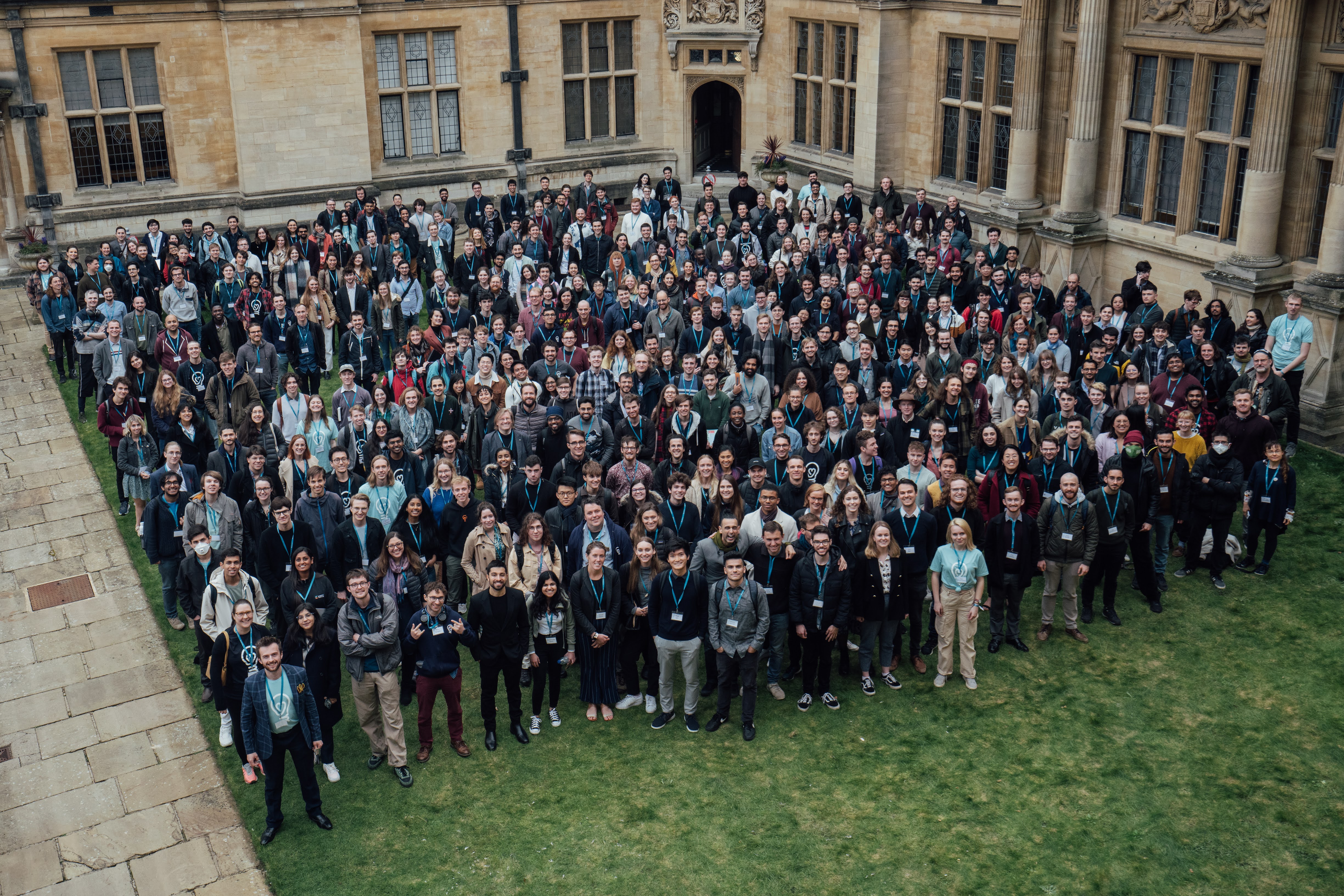
EA In-Depth Fellowship Facilitator
Dec 2021-Mar 2022
I got accepted to be a facilitator for EA Virtual Programs In-Depth Fellowship, it was an awesome experience!
Summary
I facilitated the EA In-Depth Fellowship after completing it myself, was a super enjoyable time! My first time trying to teach competently, and I eventually met one of my fellows at EAGxOxford 2022.

Miller-Rabin Research
Nov 2021-Jan 2022
Did some research in to the liars in the Miller-Rabin Primality Test, inspired by Numberphile.
Summary
This was an interesting project, I was watching Numberphile and I saw this video, and Matt Parker pointed out an open research problem involving liars in the Miller-Rabin Primality test. And so, I worked on it.
I created a paper and tried to get it published on arXiv, which didn't succeed (mostly because the paper isn't very high quality). I emailed Matt Parker my research efforts, here's hoping tomorrow I get a reply!
EA Bristol Website Redesign
Nov 2021-Nov 2021
Re-designed EA Bristol's website.
Summary
Worked on the website for my brother. That's it.
Effective Altruism In-Depth Fellowship
Oct 2021
I attended EA Virtual Program's In-Depth Fellowship after my introductory fellowship by EA Cambridge.
Effective Altruism In-Depth Fellowship's date is the date I started logging, not the date when the project started.
Summary
Wow, it's crazy how nearly 2 months just flew by. Incredible, incredible fellowship. Can't recommend it highly enough.
EA Global: London 2021
Oct 2021
Attended EA Global: London 2021 as a virtual attendee.
EA Global: London 2021's date is the date I started logging, not the date when the project started.
Summary
It was great seeing both Benjamin Todd and William MacAskill (albeit virtually) talk in such an in-depth manner. One day, I'll hopefully go for one physically!
Retroactive
This is a retroactive recollection of all the projects I undertook in my life before starting this website. None of these dates are particularly accurate!
Classless CSS + Bear Blog Replacement
Sep 2021-Aug 2022
Summary
In my experimentations with Bear Blog (which I developed a replacement for), I made some classless CSS files. I somewhat actively worked on them till ~August 2022. Feel free to use them!
youthree
Aug 2021-Oct 2021
Summary
My first real "weekend" programming project (which take way longer than a weekend). You can find a screenshot of the rare instance the website wasn't broken down below:

Symposium Project
May 2021-Aug 2021
Summary
The last project I worked with my brother before he went for university (and the first "real" project with him) was a blog that I had developed and where we both wrote about a subject we had read about/found interesting.
We had our fair share of arguments during this project, but I'm sure it made our relationship stronger in the end. You can find some of the blog posts from this era on my blog.
CaryKH's Prisoner's Dilemma Tournament
May 2021-May 2021
Summary
Was quite a fun tournament! I watched CaryKH's BFDI series when I was quite young, so it was interesting to see this as a natural evolution from that. I called my file "Elephant.py" and came in the ~92% percentile.
WaveLF Courses
sometime in 2020
Summary
An interesting first foray into the world of extracurriculars, I distinctly remember running from the car after an outing to attend my microeconomics class. The neurodegenerative disease course was also interesting. I hope all my instructors are doing well now!
Archive
These are for projects that, while I may still continue in some capacity, I do not log them anymore.
Ukulele and Harmonica
Trying to get better every day, I practice both in the morning.
Archive
Here's a link to all my public ukulele and harmonica recordings.
Guitar
Trying to learn classical guitar via learning chords and scales as well as various songs.
Archive
Here's a link to all my public guitar recordings.
Drums
Trying to get better as well as record covers when creativity striked.
Archive
Here's a link to all my public drum recordings.
Note
I define a project as anything I am actively building, creating or participating in. Things really personal to me and my routine (such as meditation, running and poetry) don't get summaries. Enjoy!